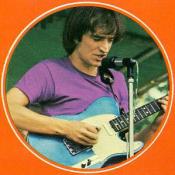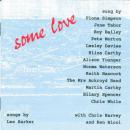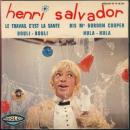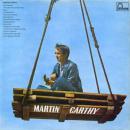We plough and sow we are so low
That we delve in the dirty clay
Till we bless the plain with golden grain
And the vale with the fragrant hay
Our place we know we are so low
Down at the landlord's feet
We're not too low the bread to grow
Too low the bread to eat
Down down we go we are so low
To the hell of the deep sunk mine
But we gather the proudest gems that glow
When the crown of the despot shines
Whenever he lacks upon our backs
Fresh loads he deigns to lay
We're far too low to vote the tax
Not too low to pay
We're low we're low we're rabble we know
Yet at our plastic power
The mould at the lordling's feet will grow
Into palace and church and tower
Then prostrate fall in the rich man's hall
Cringe at the rich man's door
We're not too low to build the wall
Too low to tread the floor
We're low we're low we are so low
Yet from our fingers glide
The silken flow and the robes that glow
Round the limbs of the sons of pride
And what we get and what we give
We know and we know our share
We're not too low the cloth to weave
Too low the cloth to wear
We're low we're low we are so low
Yet when the trumpets ring
The thrust of a poor man's arm will go
Through the heart of the proudest king
We're low we're low our place we know
Only the rank and file
We're not too low to kill the foe
Too low to touch the spoil
[We're low we're low as to war we go
To fight some foreign country
That was yesterday our greatest friend
But today's our enemy
God bless our boys the papers scream
Praise them the churchmen cry
When the war is won and home we come
Who care's if we live or die?
We're low we're low 'till that happy day
When we're called to a heaven on high
When the freedom we never had in our lives
Will be there on the day we die
If you see no worth suffering hell on earth
For the promise of a heaven above
Why not join the fight that one day we might
See a heaven down here below]
That we delve in the dirty clay
Till we bless the plain with golden grain
And the vale with the fragrant hay
Our place we know we are so low
Down at the landlord's feet
We're not too low the bread to grow
Too low the bread to eat
Down down we go we are so low
To the hell of the deep sunk mine
But we gather the proudest gems that glow
When the crown of the despot shines
Whenever he lacks upon our backs
Fresh loads he deigns to lay
We're far too low to vote the tax
Not too low to pay
We're low we're low we're rabble we know
Yet at our plastic power
The mould at the lordling's feet will grow
Into palace and church and tower
Then prostrate fall in the rich man's hall
Cringe at the rich man's door
We're not too low to build the wall
Too low to tread the floor
We're low we're low we are so low
Yet from our fingers glide
The silken flow and the robes that glow
Round the limbs of the sons of pride
And what we get and what we give
We know and we know our share
We're not too low the cloth to weave
Too low the cloth to wear
We're low we're low we are so low
Yet when the trumpets ring
The thrust of a poor man's arm will go
Through the heart of the proudest king
We're low we're low our place we know
Only the rank and file
We're not too low to kill the foe
Too low to touch the spoil
[We're low we're low as to war we go
To fight some foreign country
That was yesterday our greatest friend
But today's our enemy
God bless our boys the papers scream
Praise them the churchmen cry
When the war is won and home we come
Who care's if we live or die?
We're low we're low 'till that happy day
When we're called to a heaven on high
When the freedom we never had in our lives
Will be there on the day we die
If you see no worth suffering hell on earth
For the promise of a heaven above
Why not join the fight that one day we might
See a heaven down here below]
Contributed by Bernart Bartleby - 2015/4/27 - 12:03
premesso che Sir Martin Carthy è da più di 40 anni uno dei miei eroi musicali (da cui gente come Bob Dylan o Paul Simon hanno rubacchiato a man basse ai loro esordi senza che lui mai rivendicasse nulla nonostante le evidenze), vorrei ricordare anche la splendida versione che di questa canzone offrono The Happy End nel loro disco Resolution del 1987
Flavio Poltronieri - 2015/4/27 - 19:51
Song of the Low
"The Forgotten: A Chartist Musical for Newport"
Written by Patrick Jones and Vanessa Dodd.
Directed by Richard Berry and Vanessa Dodd.
Singers:
Richard Berry, Samuel Lloyd Williams and Deborah Davies
"The Forgotten: A Chartist Musical for Newport"
Written by Patrick Jones and Vanessa Dodd.
Directed by Richard Berry and Vanessa Dodd.
Singers:
Richard Berry, Samuel Lloyd Williams and Deborah Davies
Bernart Bartleby - 2015/4/27 - 21:31
Ciao Flavio, ho appena contribuito qualche video da YouTube e c'è anche la versione de The Happy End.
C'è mancato poco che mandassi questa "Chartist Song" storpiando Carthy in Charty!
Davvero un signore Sir Martin Carthy , e pure uno con un repertorio dar fastidio ai potenti!
Quanto ai "Chartists", anche loro doveva essere dei duri: nella stampa d'epoca di cui sopra vedo i poliziotti subissati da sassi e bastoni, e mi pare che ci sia pure un gatto morto che vola nella loro direzione!
Saluti
C'è mancato poco che mandassi questa "Chartist Song" storpiando Carthy in Charty!
Davvero un signore Sir Martin Carthy , e pure uno con un repertorio dar fastidio ai potenti!
Quanto ai "Chartists", anche loro doveva essere dei duri: nella stampa d'epoca di cui sopra vedo i poliziotti subissati da sassi e bastoni, e mi pare che ci sia pure un gatto morto che vola nella loro direzione!
Saluti
Bernart Bartleby - 2015/4/27 - 22:25
Nonostante sia un gigante, il 22 ottobre del 1999 è venuto a Sanremo al Premio Tenco ad accompagnare la moglie Norma Waterson con la modestia di un comprimario qualsiasi!
Flavio Poltronieri - 2015/4/27 - 23:03
×
![]()
Note for non-Italian users: Sorry, though the interface of this website is translated into English, most commentaries and biographies are in Italian and/or in other languages like French, German, Spanish, Russian etc.







Versi di Ernest Charles Jones (1819-1869), scrittore e poeta inglese, militante Cartista.
Sulla melodia di un inno composto nel 1813 da tal G. J. Baker, ripreso ed adattato da Martin Carthy.
Testo trovato su Mainly Norfolk: English Folk and Other Good Music
Nel disco di Carthy intitolato “Out of the Cut” del 1982.
Le ultime due strofe non compaiono nella versione di Carthy ma in quella di Bob Davenport intitolata “Song of the Other Ranks”, presente nel suo disco “The Common Stone” del 2004, con Chumbawamba, lo stesso Martin Carthy e Richard Thompson
Ernest Charles Jones fu un esponente del Cartismo, movimento proto-socialista inglese che a metà 800 si battè, nel corso di manifestazioni anche violente, per il suffragio universale (maschile), il voto segreto, l’eleggibilità in Parlamento indipendentemente dal patrimonio, l’indennità parlamentare, la revisione delle circoscrizioni elettorali affinchè ci fosse omogeneità tra numero di elettori ed eletti.
La terzultima e penultima strofa sono espressamente contro la guerra.